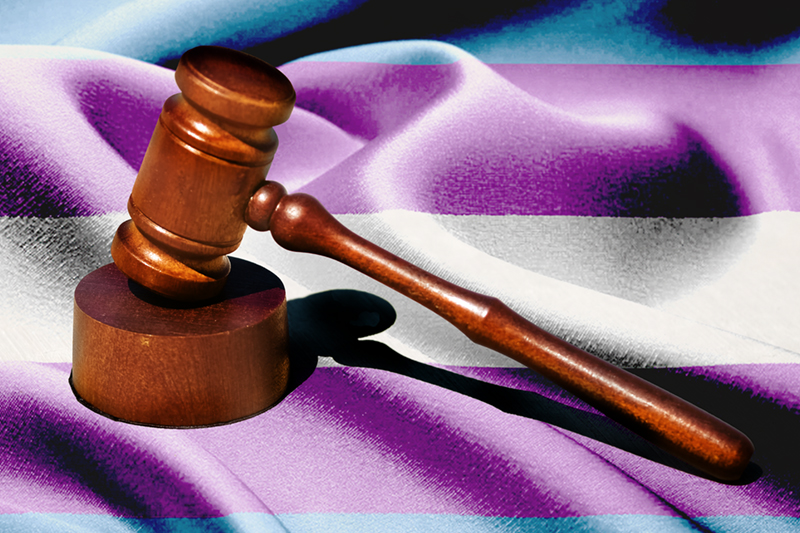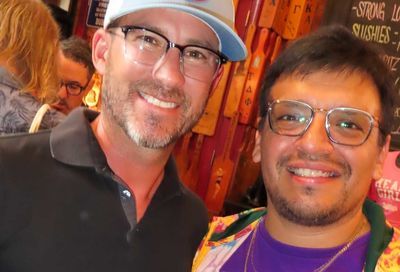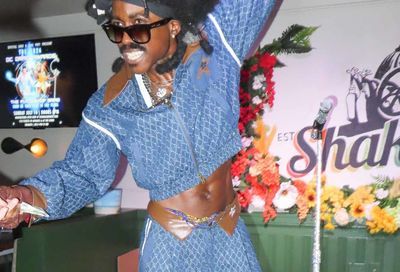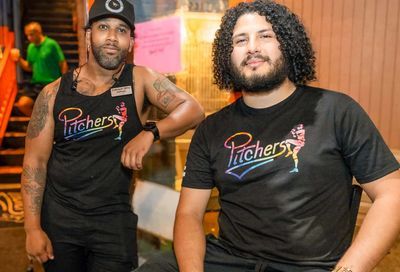Safety Monitor
DCPS educators gather to keep queer kids safe
The transition from July to August coincides with the phrase ”back to school” creeping back into the collective consciousness. But with kids not due back into D.C. public schools for nearly a month, who wants to think about school? Maybe not the kids, but quite a few education professionals gave up some summer free time to learn about ways to make schools safer. From July 16-31, teachers, student counselors, school administrators and others gathered at Gallaudet University’s Kellogg Conference Center in Northeast D.C. for the D.C. Public Schools (DCPS) Peaceable Schools Program.
Notably, the last two days of the program were dedicated to ”creating a safe and welcoming environment for GLBTQ youth.” Now in its sixth year, this gay component, offered by Metro D.C. PFLAG (Parents, Friends and Family of Lesbians and Gays), attracted about 50 DCPS professionals for the day-long meetings broken into four sessions: bullying/harassment; gender-variant behaviors; gay youth and gay parents; and student safety.
Cordelia Coleman, now in her sixth year as a DCPS school counselor, and a DCPS teacher for 20, was among the attendees. This was her first year at the GLBTQ sessions — following her first year presented with sexual-orientation issues by the students she serves.
”I’m already receiving a wealth of information,” she said, near the close of the first session Monday morning, presented by Angel Brown of the D.C.-based Advocates for Youth, a national organization; and Christopher Lane, of the local Sexual Minority Youth Assistance League (SMYAL). Coleman explained that during the 2006-2007 school year, she found herself dealing with several middle-school girls who themselves were dealing with issues of sexual orientation. Coleman says she was able to refer the students to SMYAL, following a colleague’s suggestion. She added, however, that SMYAL is not always accessible to students for reasons such as privacy, schedules, etc., but that school is mandatory and must therefore be a frontline ”safe space” for GLBTQ students.
Of particular interest to educators in the District, where most students belong to some ethnic/racial minority, was a document detailing ”The Impact of Homophobia and Racism on GLBTQ Youth of Color,” crafted by Emily Bridges of Advocates for Youth and first released in June.
”This was supposed to be very straight forward, but there’s really not that much out there,” says Bridges, who holds a master’s degree in library science. Culling from 24 different sources, Bridges’ unique one-sheet advises, for example, that youth of color ”are significantly less likely to have told their parents they are GLBTQ” or that, according to one study, ”more than half of ethnic minority transgender youth had experienced forced sex.”
Among other resources available to DCPS professionals at the sessions was an expansive list of terms from SMYAL, clueing them into everything from ” boydyke” (young women who pass for male) to ”shape shifter” (preferred term for some who eschew ”transsexual,” while changing their bodies to reflect another gender).
Though an older educator who chose to attend did advise that homosexuality was ”setting yourself up to go straight to hell,” the seemingly universal sentiment — herself included — was that young people need non-judgmental support, whatever an educational professional’s personal beliefs.
Lane emphasized, to sounds of agreement, ”Your beliefs may not be what they need. To tell them they’re going to hell is not what they need.”
Brown, a former SMYAL client herself, added that such a discussion, where everyone is allowed to respectfully share whatever feelings they may have, is the best way to make progress. ”What’s happening is very natural. You have to have an organic conversation.”
For more information about Metro DC PFLAG, visit www.pflagdc.org. Advocates for Youth is online at www.advocatesforyouth.org. SMYAL is at www.smyal.org.
Support Metro Weekly’s Journalism
These are challenging times for news organizations. And yet it’s crucial we stay active and provide vital resources and information to both our local readers and the world. So won’t you please take a moment and consider supporting Metro Weekly with a membership? For as little as $5 a month, you can help ensure Metro Weekly magazine and MetroWeekly.com remain free, viable resources as we provide the best, most diverse, culturally-resonant LGBTQ coverage in both the D.C. region and around the world. Memberships come with exclusive perks and discounts, your own personal digital delivery of each week’s magazine (and an archive), access to our Member's Lounge when it launches this fall, and exclusive members-only items like Metro Weekly Membership Mugs and Tote Bags! Check out all our membership levels here and please join us today!





















